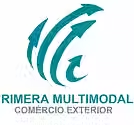Home >
Starting in foreign trade



Starting international operations isn't just for large corporations: with planning, proper SISCOMEX RADAR certification, and specialized support, any company can buy or sell in the global market. Below, you'll find a practical roadmap—with additional tips—for transforming your organization's purchasing or sales model and achieving new profit margins with RIMERA MULTIMODAL.
IMPORTATION with Intelligence: Boost Your Results

Importing directly from the source is a strategy that eliminates intermediaries, reduces the tax burden on already "nationalized" products, and provides complete control over quality and delivery times. This approach allows companies in all segments to increase their competitiveness and increase profit margins.
Rimera Multimodal specializes in transforming the first import process into a safe, planned, and financially viable process. We provide comprehensive, free simulations, presenting clients with all transaction costs—from taxes and fees to final road transportation—even before the purchase order is signed.
Eligibility and Qualification Criteria in Siscomex RADAR
Any company—from individual entrepreneurs to large industries—can formally import goods, as long as it is registered with the Siscomex RADAR system. This is a mandatory and strategic requirement, as errors in registration can generate additional costs, customs clearance delays, and even operational bottlenecks.
Rimera Multimodal manages the entire RADAR registration or expansion process, ensuring that your company is able to import legally and without tax surprises.
Tax Analysis and Choosing the Correct NCM
The NCM (Mercosur Common Nomenclature) code defines the tax classification of goods and determines which taxes are levied on imports. Choosing the wrong code can result in fines, withholding taxes, and undue taxation.
At Rimera Multimodal, we carefully analyze each product, calculating the II, IPI, PIS/COFINS, and ICMS rates, in addition to verifying the possibility of qualifying for special customs regimes such as Drawback, Ex-Tariff, Temporary Admission, and Bonded Warehouse. This technical analysis allows us to reduce the tax burden in a 100% legal and secure manner.
Advantages of Importing Directly and Avoiding Purchasing Nationalized Goods
- Cost Reduction
By importing directly from the source, it is possible to achieve average savings of 15% to 30% on the final price of the product, eliminating intermediaries and reducing the incidence of taxes on domestic resale.
- Predictable Profit Margin
With fewer intermediaries, pricing becomes more stable and predictable, allowing for financial planning and greater security in commercial negotiations.
- Access to Exclusive Products
Importing opens doors to new launches, technologies, and trends that are not yet available in the domestic market, ensuring a competitive advantage and exclusive offerings.
RIMERA MULTIMODAL Integrated Solutions for your Import
- Complete Cost Simulation
We perform comprehensive simulations, considering taxes, port or airport fees, international freight (air, sea, or courier), domestic road transportation, insurance, and customs brokerage fees. Our goal is to provide you with complete clarity on the cost of the transaction before closing the deal.
- Multimodal Logistics Planning
We develop optimized logistics strategies, combining air, sea and road transport to reduce transit time and optimize operating costs.
- Document Management and Monitoring
Post-Clearance
We take care of all the required documentation — commercial invoices, packing lists, certificates of origin, import licenses — and provide follow-up after customs clearance, ensuring that your cargo reaches its final destination without delays or damage.
Don't rely solely on the domestic market. Speak with a RIMERA MULTIMODAL consultant and discover how direct import can boost your company's competitiveness and cash flow.
Strategic EXPORT : Take Your Production to the World

Exporting your products doesn't have to be a complex or bureaucratic process. With Rimera Multimodal's specialized assistance, your company can conquer international markets safely, profitably, and with significant tax benefits—such as exemptions from **II, IPI, PIS, and COFINS.
Furthermore, exporting strengthens production flows throughout the year, reduces dependence on the domestic market, and positions your brand on the global stage.
Essential Steps of the Export Process
To ensure successful operations, it is essential to follow a structured flow:
- 1. International Market Research
* Identifying target countries with the highest demand for your product.
* Competitive analysis and adapting the commercial strategy for each region.
- 2. Product and Documentation Suitability
* Packaging and labeling are adjusted to international standards.
* Obtaining mandatory certifications (ANVISA, MAPA, Inmetro, among others).
- 3. Definition of Commercial Conditions and Incoterms
* Escolha de Incoterms que protejam sua margem e minimizem riscos logísticos.
* Fechamento cambial e definição do meio de pagamento mais seguro (CAD, DP, carta de crédito).
- 4. Export Customs Clearance
* DU-E (Single Export Declaration) registration.
* Document verification and customs clearance.
RADAR Expresso: Agility for Any Size of Company
Even micro-entrepreneurs and small businesses can enter the international market with RADAR SISCOMEX Expresso, a program with no value limit that allows them to expand their operations as opportunities arise.
Prospecting for International Buyers
Rimera Multimodal connects your company to qualified buyers through:
* Targeted international mailing list.
* Global B2B platforms.
* Direct contact with traders specializing in Brazilian products.
This network ensures a greater chance of closing deals and market diversification.
Export with Full Support from Rimera Multimodal
We offer an end-to-end solution to help your company export safely:
* International marketing consulting to position your brand in the right channels.
* Contract negotiation with a focus on legal and exchange rate security.
* Integrated logistics: factory pickup, cargo consolidation, booking with shipping lines or airlines, and delivery to the final destination.
